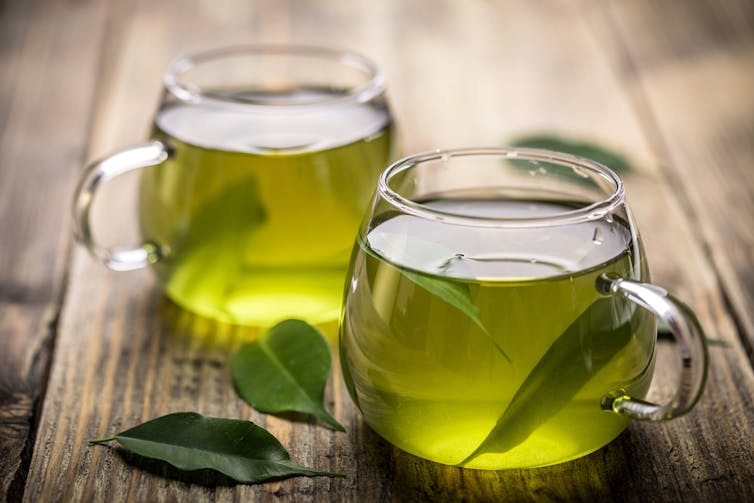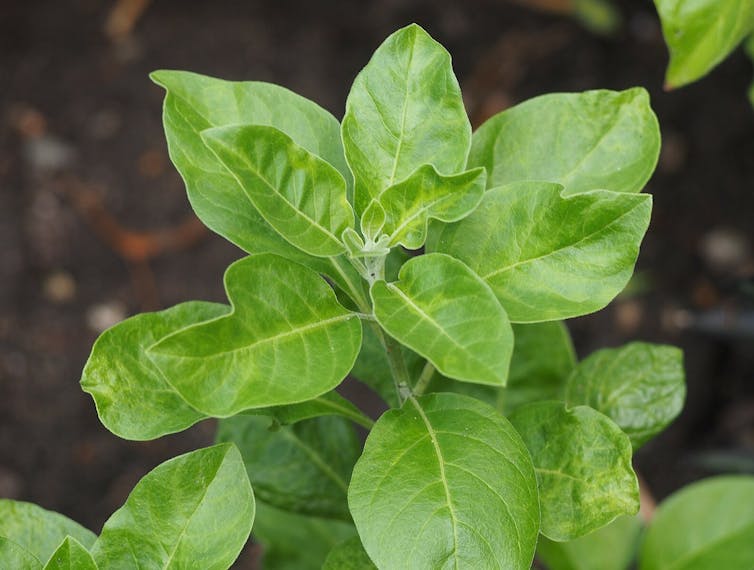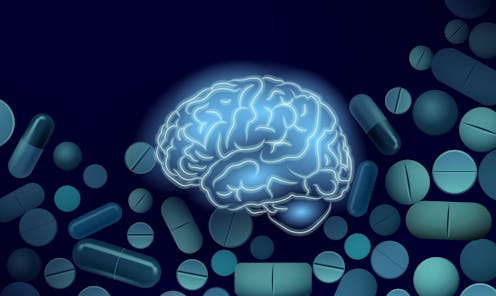Source: The Conversation (Au and NZ) – By Nenad Naumovski, Professor in Food Science and Human Nutrition, University of Canberra
Humans have long been searching for a “magic elixir” to make us smarter, and improve our focus and memory. This includes traditional Chinese medicine used thousands of years ago to improve cognitive function.
Now we have nootropics, also known as smart drugs, brain boosters or cognitive enhancers.
You can buy these gummies, chewing gums, pills and skin patches online, or from supermarkets, pharmacies or petrol stations. You don’t need a prescription or to consult a health professional.
But do nootropics actually boost your brain? Here’s what the science says.
What are nootropics and how do they work?
Romanian psychologist and chemist Cornelius E. Giurgea coined the term nootropics in the early 1970s to describe compounds that may boost memory and learning. The term comes from the Greek words nӧos (thinking) and tropein (guide).
Nootropics may work in the brain by improving transmission of signals between nerve cells, maintaining the health of nerve cells, and helping in energy production. Some nootropics have antioxidant properties and may reduce damage to nerve cells in the brain caused by the accumulation of free radicals.
But how safe and effective are they? Let’s look at four of the most widely used nootropics.
1. Caffeine
You might be surprised to know caffeine is a nootropic. No wonder so many of us start our day with a coffee. It stimulates our nervous system.
Caffeine is rapidly absorbed into the blood and distributed in nearly all human tissues. This includes the brain where it increases our alertness, reaction time and mood, and we feel as if we have more energy.
For caffeine to have these effects, you need to consume 32-300 milligrams in a single dose. That’s equivalent to around two espressos (for the 300mg dose). So, why the wide range? Genetic variations in a particular gene (the CYP1A2 gene) can affect how fast you metabolise caffeine. So this can explain why some people need more caffeine than others to recognise any neurostimulant effect.
Unfortunately too much caffeine can lead to anxiety-like symptoms and panic attacks, sleep disturbances, hallucinations, gut disturbances and heart problems.
So it’s recommended adults drink no more than 400mg caffeine a day, the equivalent of up to three espressos.

LHshooter/Shutterstock
2. L-theanine
L-theanine comes as a supplement, chewing gum or in a beverage. It’s also the most common amino acid in green tea.
Consuming L-theanine as a supplement may increase production of alpha waves in the brain. These are associated with increased alertness and perception of calmness.
However, it’s effect on cognitive functioning is still unclear. Various studies including those comparing a single dose with a daily dose for several weeks, and in different populations, show different outcomes.
But taking L-theanine with caffeine as a supplement improved cognitive performance and alertness in one study. Young adults who consumed L-theanine (97mg) plus caffeine (40mg) could more accurately switch between tasks after a single dose, and said they were more alert.
Another study of people who took L-theanine with caffeine at similar doses to the study above found improvements in several cognitive outcomes, including being less susceptible to distraction.
Although pure L-theanine is well tolerated, there are still relatively few human trials to show it works or is safe over a prolonged period of time. Larger and longer studies examining the optimal dose are also needed.

grafvision/Shutterstock
3. Ashwaghanda
Ashwaghanda is a plant extract commonly used in Indian Ayurvedic medicine for improving memory and cognitive function.
In one study, 225-400mg daily for 30 days improved cognitive performance in healthy males. There were significant improvements in cognitive flexibility (the ability to switch tasks), visual memory (recalling an image), reaction time (response to a stimulus) and executive functioning (recognising rules and categories, and managing rapid decision making).
There are similar effects in older adults with mild cognitive impairment.
But we should be cautious about results from studies using Ashwaghanda supplements; the studies are relatively small and only treated participants for a short time.

Agnieszka Kwiecień, Nova/Wikimedia, CC BY-SA
4. Creatine
Creatine is an organic compound involved in how the body generates energy and is used as a sports supplement. But it also has cognitive effects.
In a review of available evidence, healthy adults aged 66-76 who took creatine supplements had improved short-term memory.
Long-term supplementation may also have benefits. In another study, people with fatigue after COVID took 4g a day of creatine for six months and reported they were better able to concentrate, and were less fatigued. Creatine may reduce brain inflammation and oxidative stress, to improve cognitive performance and reduce fatigue.
Side effects of creatine supplements in studies are rarely reported. But they include weight gain, gastrointestinal upset and changes in the liver and kidneys.
Where to now?
There is good evidence for brain boosting effects of caffeine and creatine. But the jury is still out on the efficacy, optimal dose and safety of most other nootropics.
So until we have more evidence, consult your health professional before taking a nootropic.
But drinking your daily coffee isn’t likely to do much harm. Thank goodness, because for some of us, it is a magic elixir.
![]()
Dr Nenad Naumovski has previously received funding from the National Health and Medical Research Council, Malaysian Health and Research Council, ACT government, Dementia Research Foundation, Arthritis ACT, Australian Association of Gerontology, Hospital Foundation and the ACT Board of Secondary Studies. He has had university funding from the University of Newcastle (Australia), Australian National University, University of Canberra, Monash University, Beijing University of Chinese Medicine and Health Polytechnic Ministry of Health Jakarta. He has had industry funding from Assistive Technology Australia, Chiron Health Products, Capitol Chilled Foods Australia, Archer Daniels Midland and Australian Beverage Council. He has received travel funding from the Nutrition Society of Australia, Australian Institute of Food Science and Technology, and Australian Atherosclerosis Society. He is a member of Nutrition Society Australia, the Australian Atherosclerosis Society, Australian Institute of Food Science and Technology, Asian-Pacific Society of Atherosclerosis and Vascular Disease, International Society for Nutritional Psychiatry, Early Intervention in Mental Health, Nutrition Society of United Kingdom and American Society for Nutrition. To the best of my knowledge, I am not aware that any of the companies in this disclosure are involved in the research or marketing of nootropics mentioned in this article.
Amanda Bulman receives funding from the University of Canberra. She is a member of the Australian Institute of Food Science and Technology.
Dr Andrew McKune has previously received funding from the ACT Health Research and Innovation Fund, Australian Institute of Sport, Dementia Research Foundation, Arthritis ACT, Australian Association of Gerontology, Hospital Foundation, University of Canberra, Chiron Health Products and Archer Daniels Midland. He is a member of the International Society for Nutritional Psychiatry, and International Early Intervention and Prevention in Mental Health Association. To the best of my knowledge, I am not aware that any of the companies in this disclosure are involved in the research or marketing of nootropics mentioned in this article.
– ref. What are nootropics and do they really boost your brain? – https://theconversation.com/what-are-nootropics-and-do-they-really-boost-your-brain-224628






